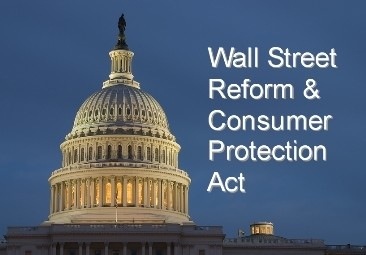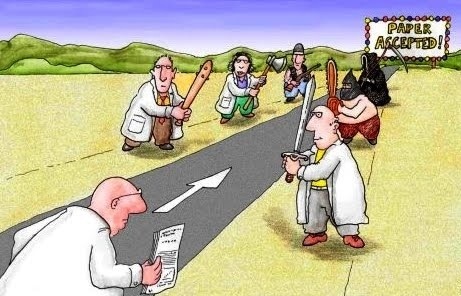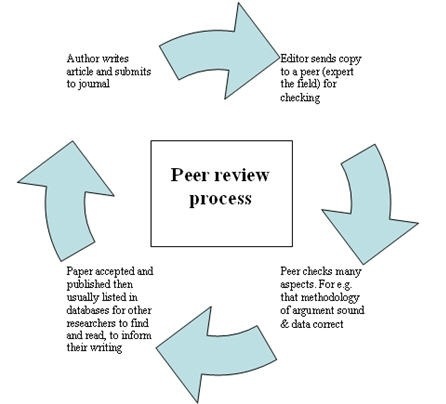
(A persuasive analysis written and submitted in academia; in Modern Language Association’s format.)
Warning: This is an academic research paper, therefore, long and comprehensive, and time consuming. Thank you for your understanding!
Sabiniana Balagtas Baliba
Wayne M. Tanna, ESQ, CPA
6 December 2012
DISSECTING THE NEEDS FOR DODD-FRANK
Do the Needs Justify the Act?
INTRODUCTION
Unemployment, foreclosures, eviction, bankruptcy–are the bitter results of the unprincipled practices of Wall Street and the immoral and abusive powers in Washington. (Obama) Therefore, we should not allow such grave unethical practices to happen ever again, because our economy is still dwindling and millions of American families are still struggling; still “crawling” and coping with the aftermaths of recession. We should not allow grave, or amoral practices to recur, for the United States’ economy and our people ultimately cannot afford it—we ought to ensure our nation’s full recovery!
OVERVIEW OF THE RECESSION
The National Bureau of Economic Research defines recession (limped the nation from years 2007 to 2010) as follows:
. . . Is a period between a peak and a trough, and an expansion is a period between a trough and a peak. During a recession, a significant decline in economic activity spreads across the economy and can last from a few months to more than a year. Similarly, during an expansion, economic activity rises substantially, spreads across the economy, and usually lasts for several years. (“U.S. Business Cycle”)
Insufficient or poor implementations of laws on accountability and transparency in Wall Street and the entire finance sector brought our nation the worst financial crisis since the Great Depression in 1929. It resulted to our highest unemployment rate, as about eight millions of Americans lost sources of living. In addition, many businesses failed, and there was a significant drop in housing prices. Millions of homeowners (from all fifty states or across the country) lost their houses; their homes foreclosed and they evicted. In addition, retirement and personal savings of many of our fellows were wiped out, and bankruptcy filings skyrocketed too. The saddest part, taxpayers were forced to bail out big banks that failed, not out of misfortunes, but because they were greedy to earn profit for themselves. They did not followed protocols, and even by passed existing laws for their selfish gains. (Obama 2010) As a result, the most comprehensive and stringent financial regulation in the history of United States was created.
Responding to the economic nightmares of recession, on June 2009, the administration of President Barack Obama proposed to United States Congress, bill H.R.4173, now enacted and known as the Wall Street Reform and Consumer Protection Act, and herein referred to as the “Dodd-Frank Act” or the Act.(111thUnited States Congress)
The Act consists of 2003 pages, sixteen (16) titles—was proposed to United States Congress in June; and introduced to the floor of the House of Representative in July. A revised version was introduced on December 2, 2009 and another (in the same month) by House Financial Services Committee Chairman Representative Barney Frank (D), and by Senate Banking Committee Chairman Chris Dodd (D). Because of their involvement and efforts towards its legislation, on June 25, 2010 the conference committee proposed that the bill be named after the two legislators. (111th United States Congress)
The Dodd-Frank Act aimed to promote financial stability in United States by imposing rigorous standards to the finance and banking sectors. Most importantly, the Act aimed to protect American consumers from abusive practices which are rampant in the above-mentioned industries.
THE TITLES
The 111th Congress of the United States enacted the Dodd-Frank Act with the intention of promoting financial stability by improving accountability and transparency in the financial system. . . to end ‘‘too big to fail” to protect the American taxpayer by ending bailouts. . .,” (111th United States Congress)
The sixteen provisions of Dodd-Frank were:
Title I: Financial Stability
Title II: Orderly Liquidation Authority
Title III: Transfer of Powers to the Controller, to the FDIC, the FED
Title IV: Regulation of Advisers to Hedge Funds and Others
Title V: Insurance
Title VI: Improvements to Regulations
Title VII: Wall Street Transparency and Accountability
Title VIII: Payment, Clearing, and Settlement Supervision
Title IX: Investors Protections and Improvements to the Regulations of Securities
Title X: Bureau of Consumer Financial Protection
Title XI: Federal Reserve System Provisions
Title XII: Improving Access to Mainstream Financial Institutions
Title XIII: Pay It Back Act
Title XIV: Mortgage Reform and Anti-Predatory Lending Act
Title XV: Miscellaneous Provisions
Title XVI: Section 1256 Contracts (“Dodd-Frank Wall Street Reform”)
THE CONTROVERSIES
The most politicized titles and their few detail were: Title I, Financial Stability, outlines to new agencies charged with monitoring systemic risk and researching the state of the economy; it also aimed to clarify the supervision of bank holding companies by the Federal Reserve. Likewise, to create the Financial Stability Oversight Council, and the Office of Financial Research, the two new agencies will be under the supervision of the Department of Treasury. Moreover, the President appointed the Department Secretary serving as chair for the Council. However, the appointment must be subject to confirmation by the U.S. Senate.
The Financial Stability Oversight Council were tasked to man three major responsibilities, namely: To identify risks to the financial stability of United States both from financial and non-financial organizations. Likewise, to promote market disciplines by eliminating the expectations of banks. And that they would be bailed out by the government in the event they fail. Last, but not least, to respond to emerging threats to the stability of the financial market and the economy.
The Council was comprised of 15 members (10 voting and five non-voting advisory members)—is responsible to uphold and strengthen integrity, efficiency, competitiveness, and stability of the U.S. financial markets; and, to enhance consumers’ confidence in banking and finance.
Another controversial provision of the Act was Title III, also known as the Transfer of Powers to the Controller (of the FDIC and the Federal Reserve). Through the Act, FDIC (Federal Insurance Corporation) was mandated to increase the threshold of deposits insured from $100,000 to $250,000. The purpose was to streamline banking regulations and to reduce competitions and overlaps between different regulators by abolishing the Office of the Thrift Supervisions, and transferring its holding powers to the Federal Reserve.
Title VII, also known as Wall Street Transparency and Accountability, or Regulation of Over-the-Counter Derivatives, was another another title of the Act. According to the recently published congressional research study written by Rena Miller and Kathleen Ann Ruane, “The financial crisis implicated the over-the-counter (OTC) derivatives market as a major source of systemic risk. . . . Number of firms used derivatives. . . . Which generated enormous losses that threatened to bankrupt not only the firms themselves but also their creditors and trading partners?”
Critics labeled it as the too-crafted “Glass-Steagall for the 21st century,” (“The Dodd-Frank Act’s Push out Rule” ); criticized for its stringency, and/or complete separation of banking, investing, and insurance business activities, as existed previously before the repeal of the Glass-Steagall Act in 199. (“The Dodd-Frank Act’s Push out Rule”)
Title Seven likewise had to ensure the use of the following:
- Advances from the Fed discount window;
- Fed credit facility that is not part of a facility with broad-based eligibility under Section 13 of the Federal Reserve Act
FDIC insurance or guaranty; for the purpose of:
- Making any loan to, or purchasing any stock, equity interest or debt obligation of, any swaps entity;
- Buying the assets of any swaps entity, or guaranteeing any loan or debt issuance of any swaps entity; or
- Entering into any assistance, loss-sharing, or profit-sharing arrangement with a swaps entity. (““The Dodd-Frank Act’s Push-out Rule”)
Title X as explained in the Conference of State Bank Supervisors as follows: was the creation of an independent Bureau of Consumer Financial Protection (“Bureau”), and must be located within Federal Reserve, and led by a Director, duly appointed by the President (and confirmed by the U.S. Senate). Individuals and entities engaged in offering or providing consumer financial products and services were greatly affected by this title. It was also the most contended among the fifteen other provisions. And was accused as the most unconstitutional by critics and the Republicans. (“Title X”)
Title XIV added disclosure and significant guidelines and stringent laws to mortgage lending that dramatically affect brokers, lenders, appraisers, and all others involved or doing their courses of business in the mortgage lending industry. Included in the provision of the Act, was the creation of Consumer Financial Protection Bureau (CFPB), also known as the “Bureau” is empowered by law of rulemaking authority.
According to Committee on Consumer on Financial Services, of the American Bar Association, “. . .Title XIV was to become effective when the final regulations implementing the provision are effective. If no regulation implementing a provision of the law had been issued by January 21, 2013, then that provision becomes effective as of that date.”
HIGHLIGHTS OF THE ACT
The creation and enactment of H.R. 4173 tend to inrease transparency and accountability as follows:
- By improving consumers protection to save every American who is seeking loan, mortgages, credit cards and many others, from the pitfalls of tricky lending;
- By putting end to bailouts (“to end too big to fail”)
- By instilling discipline through strict implementation of stringent laws and regulations;
- By creating a council and bureau solely tasked to monitor and address risks in both in financial and non-financial markets;
- By ensuring transparency and accountability on derivatives, investments, hedge funds, payday lenders;
- By incorporating Volcker Rule (named after Federal Reserve Chairman Paul Volcker) restricting banks from speculative investments,
- By implementing reforms to corporate governance and executive compensation practices;
- By giving shareholders a say on pays and corporate affairs;
- By intensifying investors’ protection by ensuring credit agencies are complying with laws and regulations, and that the investors can have an access to legit information and facts;
- By enhancing Whistle-Blower Protection and Benefits, that resulted from inability of existing policies of Security Exchange Commission to detect multi-billion dollar ponzi scheme (e.g. Bernard Madoff’s Scam of the Century). (Castellina)
WHAT DOES DODD-FRANK MEANS TO ME (A PERSONAL TESTIMONY)?
Hope, better future, stronger and reliable economy—these among the many others, defined what Dodd-Frank Act meant to me!
I lost my full-time job in 2008, and the following year of 2009, our house went through foreclosure, that led to my mother’s filing of bankruptcy of Chapter 7 (liquidation), so we could save our house. Although she also lost her second job, we, her children, strongly believed that her financial dilemma was brought by the second mortgage that her ex-husband (our stepfather) defrauded her into. In barely two years of marriage, and without our knowledge, he refinanced our house four times (when our mortgage was almost paid off when he came to our lives). He pocketed all the equity monies he got from the refinancing. Through painstaking and costly investigation, we found out that her ex-husband knew someone from the lender, and most of her requirements and signatures were forged. The man connived with a friend, who works for Beneficial, the lender for the second mortgage that he got her into and beyond her will.
Modesty aside, I knew I had to share this testimony to attest such horrendous practices in the finance sectors were really happening, and that my family was living testimony that those nightmares of recession did existed and hampered American lives.
For only through legislation, aided by these kind of testimonies, we can assure such things would never ever happen again.
As a student, and soon to be an accounting professional, I was delighted to hear now, with the enactment of Dodd-Frank Act, lenders, banks, or creditors, the government could ensure all loan contracts must “readable” by ordinary consumers like me, who were non-attorneys and therefore, did not have the capacity to understand technical languages, and legal terminologies. Moreover, through this, ordinary consumers (like me) “won’t get unwittingly caught by overdraft fees,” (Obama).
I completely understand the sentiments of some legislators that the creation of an independent bureau might be a way to avoid scrutiny of the Congress and the Office of the President; and, might be a violation of of the Constitution. However, despite its imperfections, we should not trash the bill just because of some loopholes.
Our legislators should work collectively to define vague terms and fill those loopholes, to make the Act in full compliance of the constitution.
Lastly, we must keep in mind the huge need for the Act! That although there might be certain parts of the legislation that may seemed so vague, opposing members of the U.S. Congress should speak and be heard, to revise or amend the Act, but not to trash it “straight to the waste basket” and just as most Republicans legislators wanted to. Because the American families needed this act (and we still do).
We should urge the GOP and democrats to stop politicizing the Act! Politics should always end once counting of votes is finished, and the election is over. For the elected officials have works to do. Both parties should learn to work with each other collaboratively, no matter how impossible it may seem, simply because they have responsibilities to their constituents who voted and hired them to lead–so, they must lead their people to good.
Most importantly, we have not fully recovered yet from the recession. Although our economy is quite picking up, it is not stable yet. In addition, there are still a lot of us in dire need of help. Our legislators, both from GOP and the democrats should once and for all reach a consensus, not just on Dodd-Frank, but in all fiscal and economic legislations.
CONCLUSION
Indeed, unemployment, foreclosures, eviction, bankruptcy–are the bitter results of the unprincipled practices of Wall Street and the immoral and abusive powers in Washington. (Obama) Therefore, we should not allow such grave unethical practices to happen ever again, because our economy is still dwindling and millions of American families are still struggling; and still seemingly “crawling” in coping with the aftermaths of the worst recession. We should not allow grave, or amoral practices to recur, for the United States’ economy and our people ultimately cannot afford another recession to take place! We should ensure our full recovery!
We do need stringent laws and regulations that will ensure valued investors that our economy is picking up. We do need stringent laws and regulations that will ensure American families would never go through the same chaotic economy ever again! We do need stringent laws and regulations, for those are reasonable and critical to regain the full confidence of American consumers and investors. We do need stringent laws and regulations, because anything that involves money always presents temptations, but those laws will ensure that even in the most remote situations, no one can play and take advantage of us, consumers, ever again!
We do need the Dodd-Frank Act to ensure, that there will be laws that will protect our consumers’ rights, that in the event of non-compliance, there would be punishments in place for offenders and violators. We do need the Wall Street Reform and Consumer Protection Act, because we cannot afford to spend our taxpayers’ money to bail out companies who abused American consumers and disregarded law. It does not make sense to bailout those banks and big mortgage companies who deceived our people and hurt our economy. For what lies in Dodd-Frank Act is the financial security of every American.
We should not go through the same things that harmed us so detrimentally, because we are not even done cleaning all the mess of the recession; we have not even recovered yet! For the only way we can truly ensure our full recovery, is to set laws that will make it clear to offenders and violators, they can never mess up with us again! Because if we would not establish such safety nets, after all that we have been through, it only shows we did not learned anything at all! Wouldn’t it be such a shame to our faithful allies around the world that we keep on going back to the same crisis? Let us not overlook that there are many nations depending on us too, not just about peace or war, but also on finance, trading, and banking. For regardless, if one admits or not, the crisis happened, because we let those unscrupulous culprits deceived us. They took advantage of the loopholes in our legal and finance systems. Though they were the only ones who gained from their unethical practices, but it boomeranged not just to them, but to all of us! Let us keep in mind that we all have responsibilities to be diligent and vigilant in ensuring our welfare!
Finally, for more than four months of being in our (business) law class, we learned that laws were born out of some people’s unethical practices. This is why Dodd-Frank did not spawn out of nowhere; its creation resulted from grave, or amoral practices in the finance industry. Therefore, we have to enforce the act! The needs are so humongous, for that’s how bad the culprits of recession have caused our lives, and have caused our nation! For with this kind of dwindling economy, we need laws like Dodd-Frank, that will ensure our rights and welfare is duly protected. Most importantly, America cannot afford another recession. We cannot afford bailing out those careless companies and corporations anymore. Because if we do not stop bailing them out, it is more likely, that America would be bankrupt too. What is worse, no one would bailout our nation, and we are all doomed!
WORK CITED
111th Congress of the United States of America. “H.R. 4173.” Securities and ExchangeCommission. 5 Jan. 2010. Web. 4 Dec. 2012
ADMINISTRATIVE LAW – AGENCY DESIGN — DODD-FRANK ACT CREATES THE CONSUMER FINANCIAL PROTECTION BUREAU – Dodd-Frank Act, Pub. L. No. 111-203, 124 Stat. 1376 (2010) (To Be Codified In Scattered Sections Of The U.S. Code).” Harvard Law Review 124.8 (2011): 2123-2130. Academic Search Premier. Web. 22 Aug. 2012.
Bainbridge, Stephen M. “Dodd-Frank: Quack Federal Corporate Governance Round II.” Minnesota Law Review 95.5 (2011): 1779-1821. Legal Collection. Web. 22 Aug. 2012.
“BRIEF SUMMARY OF THE DODD-FRANK WALL STREET REFORM AND CONSUMER PROTECTION ACT.”The National Bureau of Economic Research. 20 Sept. 2010. Web. 3 Dec. 2012
“Business Cycle Dating Committee, the National Bureau of Economic Research.” The
National Bureau of Economic Research. 20 Sept. 2010. Web. 3 Dec. 2012
Castellina, Vanessa. “The New Financial Incentives And Expanded Anti-Retaliation Protections For Whistleblowers Created By Section 922 Of The Dodd-Frank Act: Actual Progress Or Just Politics?.” Brooklyn Journal Of Corporate, Financial & Commercial Law 6.1 (2011): 187-209. Legal Collection. Web. 22 Aug. 2012.
Culp, Christopher L. “OTC-Cleared Derivatives: Benefits, Costs, And Implications of The “Dodd-Frank Wall Street Reform And Consumer Protection Act.” Journal Of Applied Finance 20.2 (2010): 103-129. Business Source Premier. Web. 22 Aug. 2012.
“Dodd-Frank Wall Street Reform And Consumer Protection Act.” Securities Exchange Commission. N.pag. N.d. Web. 4 Dec. 2012
Jackson, Russel A.”The Dodd-Frank CONSTRUCTION ZONE.” Internal Auditor 68.2 (2011): 40-47. Business Source Premier. Web. 22 Aug. 2012.
Martin, David B. H.Franker, Matthew C. “Rating Agency Regulation After The Dodd-Frank Act: A Mid-Course Review.” Insights: The Corporate & Securities Law Advisor 25.12 (2011): 19-28. Legal Collection. Web. 22 Aug. 2012.
Maxwell, Thomas M., and Claudia V. Swhier. “Dodd-Frank Act Significantly Changes Regulatory Environment For Community Banks And Thrifts.” Bank Accounting & Finance (08943958) 23.6 (2010): 11-56. Business Source Premier. Web. 22 Aug. 2012.
Miller, Rena and Kathleen Ann Ruane. “The Dodd-Frank Wall Street Reform and Consumer Protection Act: Title VII, Derivatives.” Congressional Research Service. 6 Nov. 2012 Web. 5 Dec. 2012
Obama, Barack. “Transcript, President’s Speech Before the 111th Congress for the Passing of Wall Street Reform and Consumer Protection Act. WhiteHouse.gov. 21 July 2010. Web. 3 Dec. 2012
Paredes, Troy A. “The Shape Of Things To Come In Governance.” Corporate Board 33.197 (2012): 1-5. Business Source Premier. Web. 4 Dec. 2012.
“PROGRAM – MORTGAGE LENDING AFTER DODD-FRANK.” Committee on Consumer Financial Services. American Bar Association.
Rao, Hema, John MacDonald, and Dean Crawford. “The Dodd-Frank Wall Street Reform and Consumer Protection Act Of 2010.” CPA Journal 81.3 (2011): 14-25. Business Source Premier. Web. 22 Aug. 2012.
Schneider, Paul. “Dodd-Frank Financial Reform Legislation Addresses Executive Compensation.” Journal Of Financial Service Professionals 65.1 (2011): 27-31. Business Source Premier. Web. 22 Aug. 2012.
Smith III, Dwight C. “Capital Considerations Under The Dodd-Frank Act.” Bank Accounting & Finance (08943958) 23.6 (2010): 3-10. Business Source Premier. Web. 22 Aug. 2012.
Thatcher, Laura. “SEC Adopts Final Rules Implementing Dodd-Frank Provisions On Independence Of Compensation Committees And Their Advisers.” Insights: The Corporate & Securities Law Advisor 26.7 (2012): 2-8. Business Source Premier. Web. 22 Aug. 2012.
“The Dodd-Frank Act’s Pushout Rule: Implications for the Derivatives Market.” Practical Law Company. N.pag. N.d. Web. 4 Dec. 2012
“Title X- Bureau of Consumer Financial Protection.” Conference of State BankSupervisors. 14 July 2010. Web. 4 Dec.
“US Business Cycle Expansions and Contractions.” The National Bureau of Economic Research. N.pag. N.d.Web. 4 Dec. 2012
Weinroth, Lois L., and Richard L. Fried. “Securitization Provisions Of The Dodd-Frank Act.” Journal Of Structured Finance 16.3 (2010): 38-43. Business Source Premier. Web. 22 Aug. 2012












